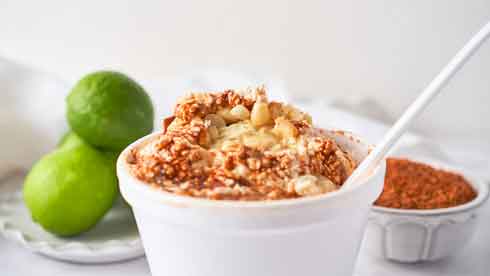Although some factors, such as age and family history, can make you more or less healthy, there are many choices you can make to improve your health. These include drinking water instead of sugary drinks and eating more fruits, vegetables, whole grains, lean proteins, and low-fat dairy.
Also, try to eat less salt, sugar, and unhealthy fats.
1. Eat a Balanced Diet
A balanced diet is essential for maintaining good health. It provides the body with important vitamins and minerals to ensure proper functioning. A healthy diet also helps to maintain a stable weight and reduce the risk of certain diseases.
A well-balanced diet should include foods from all five food groups. It should be low in saturated fats, trans fats, and added sugars. It should also contain plenty of fresh fruits and vegetables, whole grains, low-fat dairy products, and lean proteins.
A balanced diet should also be free of empty calories, such as those found in soda and energy drinks, cookies and cakes, fried foods, and ice cream. Empty calories provide energy but don’t offer any nutritional value. These should be consumed in moderation. Instead, choose healthy snacks, such as apples, yogurt, or salads with a light dressing.
2. Exercise Regularly

Getting regular exercise is one of the most important things you can do to stay healthy. However, it doesn’t have to mean long, sweaty workouts in the gym. You can also get plenty of exercise by walking to work instead of driving, parking farther away from your destination for added steps or even playing active games with friends and family.
Ideally, adults should engage in 150 to 300 minutes of moderate-intensity aerobic physical activity each week. This can be broken up into shorter bursts of activity, like a few five-minute walks, throughout the day. It is recommended that you also participate in muscle-strengthening activities at least three days per week. Many people find it easier to stick to an exercise routine if they schedule it in advance, such as scheduling their exercise into their calendar, check out here.
3. Get Enough Sleep
Sleep is often overlooked in our busy lives, but it is just as important as a healthy diet and exercise. Getting a good night’s sleep helps improve your brain function, mood, and health. It also helps prevent serious diseases such as heart disease and diabetes.
Getting enough sleep on a regular basis is important for all ages. Poor sleep increases the risk for obesity, diabetes, high blood pressure, heart disease, stroke, and depression. It also makes it harder to concentrate and may increase the likelihood of having an accident, including a motor vehicle accident.
Follow a regular sleep schedule, including on weekends. Avoid large meals and caffeine late in the day, and make sure your bedroom is quiet, dark, and comfortable. Try to get at least 7-8 hours of sleep each night.
4. Drink Water
The water in our bodies is essential for hydration. When our bodies are well-hydrated, they work at peak performance. We’ve all heard the advice to drink eight glasses of water a day. This is a good goal for most healthy adults. You can also get fluids from other beverages and foods, including milk, fruit juice, herbal teas and soup broths. Just be sure to limit sugary drinks and caffeinated beverages, as these can cause you to urinate more frequently and can make dehydration more likely.
If you’re exercising intensely, you may need to increase your water intake to replace fluids lost through sweating. If you have any long-term health conditions, talk with your doctor about how much water you should drink. Also, keep in mind that the skin is a protective barrier, so you won’t necessarily see immediate results from drinking more water.
5. Eat Healthy Snacks

Snacks can be an important part of a healthy diet, providing fuel for the body between meals and keeping energy levels high. When choosing snacks, choose foods that are low in fat and added sugar, high in fiber, protein, and vitamins and minerals.
Whole foods (and packaged foods made from them) are a sure way to boost your intake of “nutrients like fiber, protein, iron and potassium” without any extra added calories or sugar, explains Sylvester. Choose healthy proteins such as chicken, fish and beans, and go for unsaturated oils (like olive or canola) rather than saturated fats.
Conclusion:
Whether you’re prepping for the week ahead, or just looking for something to satisfy your sweet tooth, check out these mouthwatering healthy snack recipes that will have you rethinking what it means to eat healthily!
- How to Choose the Right Abrasive Tools and Supplies for Your Workshop? - September 28, 2024
- The Role of Sports Nutrition Supplement in Muscle Building - September 23, 2024
- The Evolution of Hydraulic CNC Press Brakes in China: From Traditional to High-Tech - September 4, 2024

